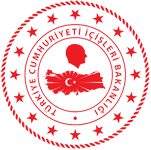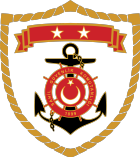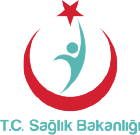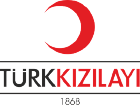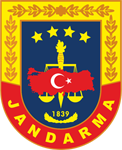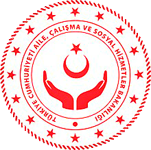

LEGISLATION
Asylum Strategy Document
Turkey’s Strategy Document on Work Envisaged to be Completed in the field of Asylum during Pre-accession Process to European Union
PURPOSE
Turkey has been reviewing its legislation, administrative structuring and practices regarding asylum within the framework of European Union candidacy process and harmonisation with EU Acquis and practices.
In the scope of these harmonisation efforts, there is a commitment in “National Action Plan of Turkey for the Adoption of EU Acquis” published in the Official Gazette No. 24352 of 24 March 2002 (Repeated) under the title “4.25.2. asylum”, which reads, “removing the geographical restrictions introduced by Geneva Convention of 1951 regarding asylum will be evaluated depending on realising the amendments to legislation and infrastructure in a way that would not encourage an asylum flow into Turkey and EU countries’ being sensitive about sharing burden.”. In this framework, necessary legislation and infrastructure work is envisaged to be completed until the day when Turkey becomes a member of EU in line with the principle of sharing burden with EU, before removing geographical restrictions.
This document lays down the fundamental principles, strategy and priorities that Turkey will follow in Turkey’s adoption of EU Acquis. In this context, the following is envisaged: maintaining efforts towards harmonisation with EU Acquis, structuring of specialised institution that will work on asylum (administrative structuring, determining authorities and responsibilities). In this framework, it is aimed at establishing a system for determining the status of refugees in asylum applications and improving social support and accommodation opportunities for the refugees granted with status.
In this framework, it is aimed at establishing a system for determining the status of refugees in asylum applications and improving social support and accommodation opportunities for the refugees granted with status.
A-FUNDAMENTAL PRINCIPLES:
With a view to developing organisational structure responsible for asylum and making national legislation harmonised with EU Acquis, all relevant laws, regulations, by-laws and circulars as well as practices will be reviewed, giving priority to the legislation mentioned in the national program, according to the fundamental principles and EU Acquis:
1. No negative procedure principle due to the nationality, origin country, religion, race, or political views of those applying for asylum will continue, and third safe countries and safe source countries will be determined.
2. While taking migration measures border security and illegal migration measures, the foreigners reaching Turkish borders will be given the opportunity to request asylum.
3. No time limitation will be applied to asylum requests.
4. Accelerated procedure will be established for the applications of refugee status or clearly groundless requests regarding asylum, the persons coming through third countries where they were not exposed to cruelty, those who do not have identification card or have eliminated their identification cards.
5. As a result of the moderate and open-to-dialogue approaches of Turkey, cooperation has been made with the United Nations High Commissioner’s Office for Refugees, and in consequence thereof, Turkey was not criticised at all with regard to asylum and migration in the report titled “1999 Global Appeal” prepared by United Nations High Commissioner’s Office for Refugees, and it was expressed that the relations of United Nations High Commissioner’s Office for Refugees with Turkey are perfect. In this framework, non-refoulement principles included in Geneva Convention of 1951 will remain to be applied with the same sensitivity.
6. Necessary legal and administrative and physical infrastructure and institutional arrangements will be made in both legislation and implementation with a view to ensuring taking as basis a coherent and objective definition of refugee status and rights and responsibilities of the refugees.
B-NEW INSTITUTIONAL STRUCTURE
1. With the aim of evaluating asylum requests and executing asylum procedures, a separate specialised institution will be established under the specialised unit that the current unit is affiliated to, which will be responsible for decision-taking and whose authorities and responsibilities will clearly be defined. EU’s support for financial aids and organisation and training the personnel should be ensured for the mentioned specialised institution.
2. The specialised institution and/or other relevant institutions to be established will be responsible for access by refugees and asylum seekers particularly to the fundamental services at the level of EU and international standards, and coordination and implementation of interministerial work on developing admission requirements.
3. Apart from the unit that is evaluating and finalising the asylum requests and determining the refugee status under the organisation of the institution mentioned in article one, “Consultancy and Evaluation Board” should be constituted to be assigned with evaluating the national policies regarding asylum and migration and the objections against the decisions taken.
4. The efforts towards ensuring the integration of the persons granted refugee status, and thus will be staying in Turkey into the economic and social life of the country at EU and International Standards should be increased.
C-MEASURES
Legal Framework
1. Asylum law should be drafted as in line with the relevant international treaties and EU Acquis.
2. Administrative arrangements should be made for implementation of asylum law and evaluation procedures for asylum requests. These arrangements should include; providing qualified translators/interpreters, having right to information about the procedure and process and providing legal assistance, when necessary. Specials measures should be taken such as making available women interviewers and translators/interpreters for sensitive groups which are in need of special protection (children, elderly and women).
3. Legislation and strategy regarding the duties, authorities, administrative structure of the prospective specialised institution, selection and appointment of its personnel, its in-service training should be prepared. Moreover, relevant by-laws, permanent order and circulars should be reviewed in the firs-contact-point institutions in terms of explicitness and fundamental principles of the plan.
4. Harmonisation with EU and international standards should be developed concerning ensuring access to employment, education, health and other main public facilities, giving ID and travel documents and family reunion.
5. It should be taken into account that the asylum, migration and illegal migration have internal dynamics and components that affect each other, and the principles and practices in these fields have constantly changing and renewing dynamics. Therefore, the work in the fields of asylum and migration should be handled with an integrated approach and should be open to international developments and subject to revising depending on the developing conditions.
Sharing the Burden
6. A serious research should be conducted as based on concrete data and figures about what will be the burden for Turkey once the geographical restrictions are removed. This research should include; expected increase in the number of refugees coming to Turkey once the geographical restrictions are removed, place and cost assessment of the refugee guesthouses, reception and removal centers that need to be established, and the cost of establishing legal and administrative infrastructure of the specialized institution to be established in the field of determining the refugee status and permanent training centers for regular training of its personnel.
7. According to the results of the research envisaged in the article above, Turkey should build a dialogue with European Union and the Member States with regard to establishing mechanisms for sharing the financial burden that will result from removing the geographical restrictions and implementing the EU Acquis. Sharing the burden should include financial and technical assistance for maintaining settlement of the refugees partially into other European countries, in addition to establishing administrative structures and guesthouses defined above .
8. Comprehensive programs should be prepared together with European Commission, Member States and United Nations High Commissioner’s Office for Refugees with regard to determining the priorities of the infrastructure and equipment required for implementation of asylum strategy and establishing the system that can distinguish illegal migrants and real migrants, establishing reception and removal centers in Turkey and providing social and legal assistance to asylum seekers and refugees.
9. Turkey considers “sharing the burden” issue as sharing, with EU countries, some of the asylum seekers and refugees included in the procedure in Turkey as well as some of the foreigners coming to Turkey through mass population movement who are provided with temporary protection, in addition to the financial aid to be provided while implementing Turkey’s asylum strategy. Turkey is also of the opinion that the food, accommodation and travel costs of the illegal foreigners who are not included within the scope of asylum procedure should be shared with source countries. Appropriate policies should be developed accordingly.
10. The institutions responsible for implementing asylum policy will make budget preparations for determining the sources required for implementing harmonization with EU. The mentioned institutions will have a contact with national and international organisations, non-governmental organisations or donour foundations/associations, when necessary, particularly with regard to the system/premises need to be established, and try to determine what their main fund resources are.
Training
11. Comprehensive and periodical raining programs should be developed and implemented for the personnel to be assigned in the prospective specialized institution. This training should include legal legislation and arrangements, main principles of international refugee law, EU Acquis and the conditions in countries of origin. Moreover, it should include interview techniques, unaccompanied minors and women exposed to gender-related pressure, persons who are exposed to torture or otherwise trauma, practical side for determining refugee status.
12. Training needs of the personnel in the field of asylum and migration should be determined, and training programs should be developed. In this framework; training programs should be developed for the purpose of asylum-related training of the personnel of General Directorate of Security, General Commandership of Gendarmerie, Coastal Guard Commandership and other related personnel of the institution, and judges and prosecutors should be included in these training programs.
13. In addition to the training programs, a pamphlet including main information and procedures should be prepared and who are possible first contact points. Furthermore, multi*lingual pamphlets should be prepared which explains to the refugees application procedures, their rights and responsibilities and resources and services that they can access in Turkey.
14. With a view to developing strategy, strengthening the institutions involved in strategy, raising social awareness and taking concrete steps in the implementation, information and raising awareness programs should be developed with regard to EU legislation and practices. In this framework, the society should be informed about refugees, with the participation of related academic circles, non-governmental organizations and think tanks working in this field, and protection programs should be developed with the support of European Commission and United Nations High Commissioner’s Office for Refugees.

